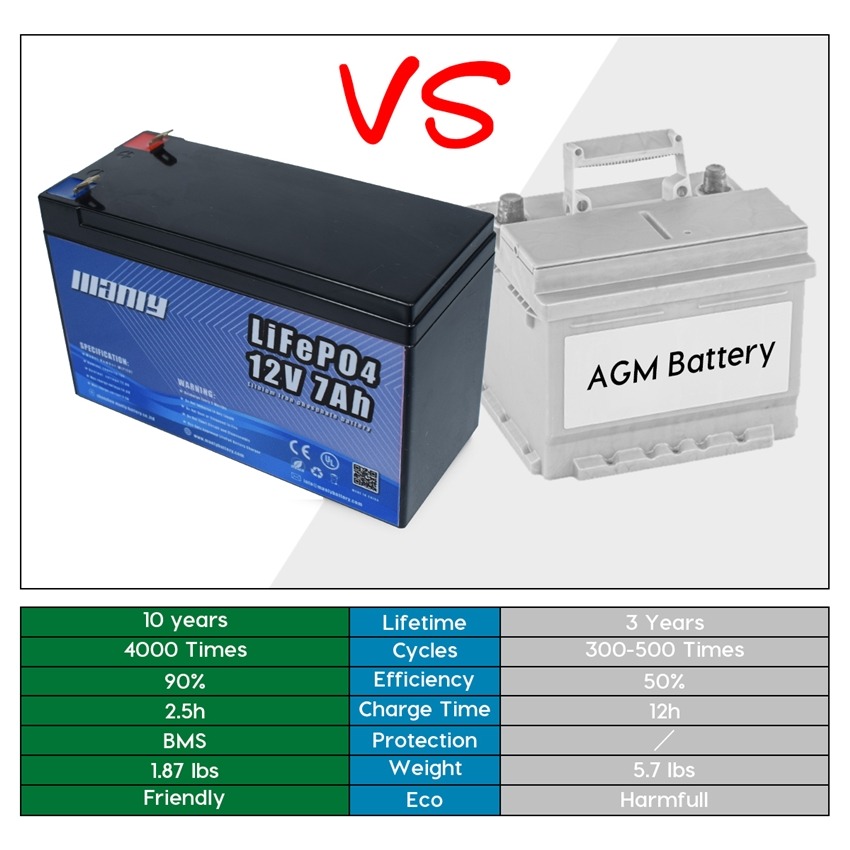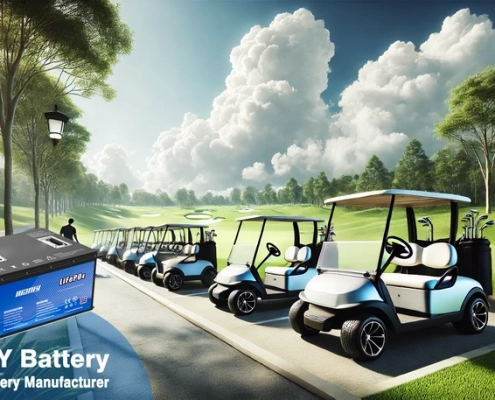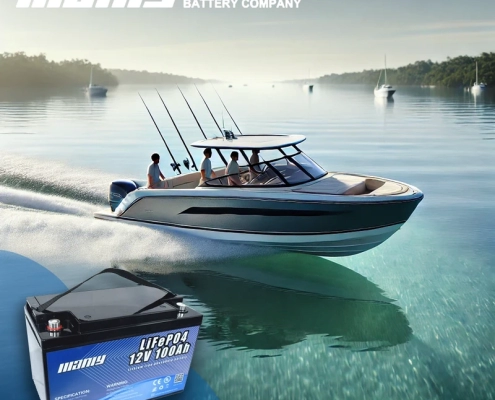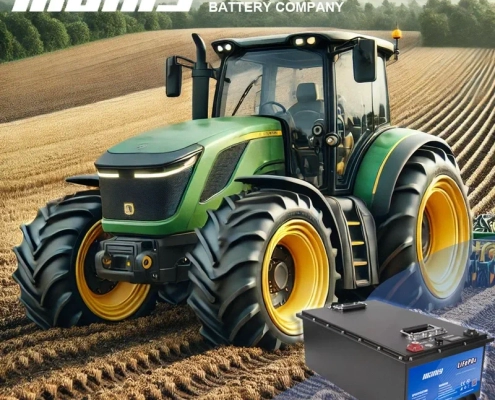What Different Series of LiFePO4 Batteries
Table of Contents
- What Different Series of LiFePO4 Batteries
- What Is A LiFePO4 Battery
- What Are The Different Types of LiFePO4 Battery Cells?
- What Are The Grades of LiFePO4 Cells?
- In-Depth Analysis of LiFePO4 Battery Cells
- Use Cases and Specific Design Purposes
- What Are The Applications of LiFePO4 Battery?
- What Are The Benefits of LiFePO4 batteries?
- Conclusion
- Learn More About Battery
The LiFePO4 Battery comes in various series, including cylindrical, prismatic, pouch, and large-format cells, each designed to meet specific power and capacity requirements for different applications. Known for its outstanding safety, long cycle life, and stable performance, this battery technology has become the go-to solution in industries like automotive, renewable energy, and consumer electronics. With diverse cell configurations and current grades such as 1C, 2C, 3C, and beyond, the LiFePO4 Battery can be tailored to suit the needs of energy storage systems, high-power devices, and electric vehicles. Understanding the features and benefits of these series is crucial for selecting the right battery to optimize efficiency and reliability.
What Is A LiFePO4 Battery
The LiFePO4 Battery is known for its exceptional stability, long lifespan, and high safety standards, making it a top choice in many industries. Unlike other lithium batteries, this battery uses lithium iron phosphate as its cathode material, which provides better thermal stability and a lower risk of overheating or fire. This feature alone has made the LiFePO4 Battery a preferred option for electric vehicles, energy storage systems, and various portable electronics.
Additionally, this type of battery is designed to offer reliable performance across a broad range of temperatures and charging conditions, allowing it to be used in applications where safety and durability are crucial. Whether you are powering an electric car, setting up a solar energy system, or looking for a safer alternative to traditional lead-acid batteries, understanding the different types of lifepo4 cells is essential for selecting the right solution for your specific needs.
What Are The Different Types of LiFePO4 Battery Cells?
There are several types of battery cells used in the construction of a LiFePO4 Battery, each with unique characteristics and performance profiles. These include cylindrical cells, prismatic cells, pouch cells, and large-format cells. Let’s explore each type in detail.
Cylindrical LiFePO4 Cells
Cylindrical lifepo4 cells are the most common format used in many devices due to their strong structure and consistent performance. Shaped like a traditional AA or AAA battery, these cells are built with a metal casing that helps protect the internal components. This design provides good mechanical stability and enables excellent heat dissipation, making these cells suitable for devices where durability and reliability are essential, such as power tools and some electric vehicles.
Because of their shape, cylindrical cells are less compact than other cell types, leading to a lower energy density. This means that more cells are needed to reach the same energy capacity compared to other formats like prismatic or pouch cells. However, their robust build and high safety standards make cylindrical lifepo4 cells a reliable choice for various LiFePO4 Battery applications.
Prismatic LiFePO4 Cells
Prismatic lifepo4 cells are rectangular-shaped cells that are commonly used in applications requiring high energy density and efficient space utilization. Their flat and compact structure allows for better stacking, making them ideal for electric vehicles, large-scale energy storage systems, and other setups where space is limited.
Unlike cylindrical cells, prismatic cells are designed to maximize energy density, storing more power in a smaller space. This makes them an excellent option when compact design is a priority. However, they can be more delicate and prone to swelling if not managed correctly. As a result, prismatic lifepo4 cells are best used in applications where size and weight are critical factors, such as in EV battery packs and solar energy storage units.
Pouch LiFePO4 Cells
Pouch lifepo4 cells are unique due to their flexible, lightweight design. Instead of a rigid casing, these cells are enclosed in a soft polymer pouch, making them ideal for devices that require a sleek form factor, such as portable electronics or medical devices. Their high energy density and adaptable shape allow manufacturers to use them in small, irregular spaces.
Despite their advantages, pouch cells require careful handling because the soft casing makes them more vulnerable to damage. If the cell swells or leaks, it can cause safety issues, so proper packaging and protection are essential. However, when used correctly, pouch lifepo4 cells offer high energy capacity and are widely used in high-performance electronics.
Large-Format LiFePO4 Cells
Large-format lifepo4 cells are designed for high-power applications where substantial energy is needed. These cells are much bigger in size compared to other formats and are often used in electric buses, industrial machinery, and energy storage systems. They are built to handle high discharge rates and provide stable performance over long durations.
Because of their size and high power output, large-format cells are not suitable for small devices. They are best used in systems that require a steady and powerful energy source, such as grid-level storage or heavy-duty electric vehicles. Large-format lifepo4 cells are ideal for situations where performance and stability are more critical than compactness.
Looking for a reliable LiFePO4 Battery? Choose MANLY Battery for top-tier performance and a 10-year warranty commitment.
What Are The Grades of LiFePO4 Cells?
The performance and application of a LiFePO4 Battery are often determined by its current grade. Current grades, represented as 1C, 2C, 3C, and higher, indicate the battery’s ability to charge and discharge at different rates. The letter “C” stands for the battery’s capacity, and the number before it shows how fast the battery can safely be charged or discharged in relation to its total capacity. Choosing the right current grade is crucial for ensuring the battery performs optimally for its intended use. Let’s look at the main categories and their applications.
1C: Ideal for Energy Storage Solutions
1C grade lifepo4 cells are specifically designed for energy storage applications where a steady, long-term power supply is required. The term “1C” means that the battery can be fully charged or discharged in one hour without risking damage. For instance, a LiFePO4 Battery rated at 100Ah and labeled as 1C can safely provide 100A of current for one hour. This makes it a good fit for solar power systems, backup power supplies, and other energy storage setups where the goal is to maintain a consistent power output over time.
The stable charge and discharge characteristics of 1C lifepo4 cells make them the go-to choice for energy storage. They perform well in stationary applications, such as residential energy storage or large-scale renewable energy systems, where safety and longevity are more important than delivering high bursts of power. Additionally, 1C cells are less prone to overheating and degradation, extending the overall lifespan of the LiFePO4 Battery.
2C/3C: Suitable for High-Power Devices
Batteries with a 2C or 3C rating are suitable for applications that require more power in a shorter period. This means a 2C LiFePO4 Battery can be fully charged or discharged in just 30 minutes, while a 3C battery can complete the process in about 20 minutes. These grades are typically used in devices that need rapid bursts of power, such as electric motorcycles, power tools, and certain types of drones.
The higher current capabilities of 2C and 3C lifepo4 cells make them more suitable for portable power systems and high-power devices. They can deliver strong performance without causing excessive heat buildup, making them reliable for power-hungry tools or equipment. However, using these cells inappropriately or for extended high-power demands can shorten their lifespan, so they are best used in applications where frequent high power is needed for shorter durations.
5C and Beyond: Perfect for Electric Vehicle Applications
For applications requiring extreme power output, such as electric cars, buses, and heavy-duty machinery, 5C and higher grade lifepo4 cells are the preferred choice. These cells can handle high current flow and deliver a massive amount of energy in a short period. For example, a 5C LiFePO4 Battery rated at 100Ah can deliver 500A of current continuously, making it ideal for large electric vehicle motors that need rapid acceleration.
The ability to sustain high current without degrading is essential in electric vehicles (EVs), as these batteries must endure the strain of fast charging, rapid acceleration, and regenerative braking. The robust design and heat management features of these lifepo4 cells make them suitable for EVs and other high-stress applications, ensuring both performance and safety. Using a lower C-rate battery in such applications could lead to overheating or premature failure, so selecting the right C-rate is crucial for EV performance.
Get the best out of your LiFePO4 Battery Cells with MANLY’s customizable options and certified safety features.
In-Depth Analysis of LiFePO4 Battery Cells
The construction and chemical composition of LiFePO4 Battery cells directly influence their performance, safety, and lifespan. Each type of cell—whether cylindrical, prismatic, pouch, or large-format—offers unique benefits that suit different applications. However, all these cells share the core advantages of LiFePO4 Battery technology, including long cycle life, superior thermal stability, and high safety standards.
- Cycle Life and Durability
One of the standout features of a LiFePO4 Battery is its long cycle life. Unlike traditional lead-acid batteries, which may only last a few hundred cycles, a well-made LiFePO4 Battery can last for thousands of cycles with minimal capacity loss. This extended lifespan makes it ideal for applications where frequent charging and discharging are expected, such as in solar energy storage systems or electric vehicles. - Thermal Stability and Safety
The LiFePO4 Battery is also known for its superior thermal stability, which reduces the risk of overheating or thermal runaway—a common issue in other lithium-ion batteries. This feature is particularly important in high-power applications like electric vehicles, where rapid charge and discharge rates can generate substantial heat. The chemical structure of lifepo4 cells prevents them from catching fire or exploding, even when damaged or overcharged, making them one of the safest lithium battery options on the market. - Environmental Impact
Another advantage is the environmental benefit offered by LiFePO4 Battery cells. They are non-toxic, do not contain heavy metals, and are recyclable, making them a more sustainable choice compared to other batteries like lead-acid or nickel-cadmium. Their long lifespan also means fewer replacements over time, reducing waste and lowering the overall environmental impact. - Voltage Stability
The voltage stability of lifepo4 cells is another important feature. A typical LiFePO4 Battery maintains a consistent voltage output throughout its discharge cycle, which helps prevent power drops and ensures consistent performance. This characteristic is particularly beneficial in applications like electric vehicles, where voltage drops can reduce efficiency and performance.
By understanding the characteristics and benefits of each type of LiFePO4 Battery cell, users can select the right battery for their needs, ensuring optimal performance, safety, and longevity for a wide range of applications.
Trust MANLY Battery, a leading name in LiFePO4 Battery manufacturing, with over 13 years of expertise in delivering premium quality.
Use Cases and Specific Design Purposes
Different applications require different configurations of LiFePO4 Battery cells to meet specific performance and power requirements. To address these needs, manufacturers have developed various designs and setups, each tailored for unique use cases. Whether it’s for residential energy storage or heavy-duty equipment, understanding the ideal configuration and purpose of each LiFePO4 Battery type helps ensure efficient and reliable performance. Below are some common use cases and their design purposes.
Modular Batteries for Flexible Configurations
Modular LiFePO4 Battery systems are designed to offer flexibility in both capacity and power output. These batteries consist of multiple interconnected lifepo4 cells, which can be easily expanded or reconfigured based on the energy needs of the user. For example, a homeowner might start with a small system for essential loads and then scale up as their power consumption increases, adding more modules without needing to replace the entire setup.
The main advantage of modular batteries is their scalability. They can be configured in series or parallel to create custom voltage and capacity combinations. This flexibility makes modular systems a popular choice for off-grid solar setups, backup power supplies, and even commercial energy storage solutions. With the ability to expand as needed, modular LiFePO4 Battery systems offer a long-term, cost-effective solution for evolving energy requirements.
Home Energy Storage Solutions
LiFePO4 Battery cells are commonly used in home energy storage systems due to their safety, reliability, and long lifespan. These batteries store excess energy generated by solar panels, ensuring that power is available during the night or cloudy days. The stable voltage output and deep discharge capability of lifepo4 cells make them particularly well-suited for residential setups where consistent power is needed to run appliances, lights, and HVAC systems.
Unlike lead-acid batteries, which can lose efficiency over time, a LiFePO4 Battery maintains its capacity even after thousands of charge cycles. This longevity makes it a smart investment for homeowners looking to reduce their reliance on the grid. Additionally, because LiFePO4 Battery cells are less likely to overheat or catch fire, they are a safer option for residential use, especially in homes with limited space.
High Power Output LiFePO4 Batteries
For applications that require bursts of high power, such as electric vehicles, motorcycles, and power tools, High Power Output LiFePO4 Batteries are the best option. These batteries use high-rate lifepo4 cells that can handle rapid charging and discharging without compromising performance. The high discharge rate allows for quick acceleration and strong power delivery, making them ideal for motors and other high-demand equipment.
These high-power batteries are often built with reinforced internal structures and cooling systems to manage the heat generated during high-current operations. They also use specially designed battery management systems (BMS) to prevent overcharging, overheating, and other issues that could impact performance. This ensures that even in high-demand applications, the LiFePO4 Battery delivers consistent, reliable power.
Specialized LiFePO4 Cells for Niche Markets
In addition to mainstream uses, there are specialized LiFePO4 cells designed for niche markets that have unique requirements. For instance, some LiFePO4 Battery cells are optimized for extreme temperatures, either hot or cold, making them suitable for use in Arctic research stations, desert environments, or high-altitude operations. Others are designed for environments with high humidity or corrosive conditions, such as marine applications.
These specialized cells are engineered to handle the specific challenges of their environments. They often include protective coatings, specialized casings, and custom BMS settings to ensure optimal performance and longevity. Because of their durability and resistance to harsh conditions, these LiFePO4 Battery cells are used in scientific equipment, remote monitoring stations, and other critical applications where standard batteries would fail.
Choose MANLY Battery for your LiFePO4 Battery needs and experience unmatched performance, even in extreme conditions.
What Are The Applications of LiFePO4 Battery?
The versatility of the LiFePO4 Battery makes it a valuable asset in a wide range of industries. From automotive to renewable energy, these batteries have proven to be reliable, safe, and efficient. Below are some key industries where LiFePO4 Battery technology has made a significant impact:
- Electric Vehicles (EVs)
The automotive industry was one of the first to adopt LiFePO4 Battery technology, thanks to its high safety standards and stable performance. Unlike traditional lithium-ion batteries, which can overheat and pose safety risks, the LiFePO4 Battery is less prone to thermal runaway, making it a safer choice for electric cars, buses, and motorcycles. The long cycle life and consistent power output also mean fewer replacements and lower maintenance costs over the vehicle’s lifespan. - Renewable Energy Systems
Solar and wind energy systems benefit greatly from using LiFePO4 Battery storage solutions. These batteries can efficiently store excess energy generated during peak production times and release it when demand is high or generation is low. The deep discharge capability of lifepo4 cells allows them to provide power over extended periods, making them ideal for off-grid and hybrid systems. - Marine and Boat Applications
Because of their resistance to moisture and corrosive environments, LiFePO4 Battery systems are used extensively in marine applications. They power everything from small boats to large yachts, providing stable and reliable energy for navigation, communication, and onboard systems. Their long lifespan and low self-discharge rate are particularly beneficial for boat owners, reducing the need for frequent replacements and ensuring power is available when needed. - Industrial Equipment
LiFePO4 Battery cells are also used in a variety of industrial applications, including forklifts, automated guided vehicles (AGVs), and heavy machinery. The high power output and rapid charging capabilities of high-power lifepo4 cells make them well-suited for handling the intense energy demands of industrial equipment. Moreover, the reduced maintenance requirements compared to lead-acid batteries lead to lower operating costs. - Portable Electronics and Medical Devices
The compact design and high energy density of LiFePO4 Battery cells make them perfect for portable electronics like laptops, cameras, and medical devices. Their stability and safety are critical in sensitive applications, ensuring that devices operate reliably without overheating or sudden power loss. In medical settings, where power consistency is crucial, LiFePO4 Battery technology helps maintain the functionality of life-saving equipment.
By serving such a broad array of industries, the LiFePO4 Battery continues to prove its versatility and reliability, making it a key component in the ongoing shift towards safer and more efficient energy solutions.
What Are The Benefits of LiFePO4 batteries?
The LiFePO4 Battery has numerous benefits that set it apart from other battery technologies. These advantages make it a preferred option for a variety of applications, ranging from electric vehicles to renewable energy storage and portable electronics. Below are some of the key reasons why LiFePO4 Battery technology is gaining popularity.
- Enhanced Safety
One of the most significant advantages of the LiFePO4 Battery is its superior safety compared to other lithium-ion batteries. The chemical structure of lifepo4 cells makes them more stable and less likely to overheat or catch fire. This is crucial in high-demand applications, such as electric vehicles, where battery safety is paramount. Even when exposed to high temperatures or physical damage, a LiFePO4 Battery is less prone to thermal runaway, making it one of the safest options on the market. - Long Cycle Life
The LiFePO4 Battery can endure thousands of charge and discharge cycles without losing significant capacity. For example, a typical LiFePO4 Battery can last for up to 3,000 to 5,000 cycles, while traditional lead-acid batteries usually degrade after just a few hundred cycles. This makes the LiFePO4 Battery an ideal choice for applications requiring frequent cycling, such as solar energy storage systems, electric vehicles, and backup power solutions. - Stable Voltage Output
A LiFePO4 Battery provides a stable voltage output throughout its discharge cycle, which ensures consistent performance. Unlike other batteries that experience voltage drops as they discharge, the LiFePO4 Battery maintains a steady output, making it a reliable power source for applications like electric cars and renewable energy systems where consistent performance is essential. - Fast Charging Capability
LiFePO4 Battery cells can be charged at a faster rate compared to traditional lead-acid batteries. This quick charging ability is particularly beneficial in high-power applications such as electric vehicles, where minimizing downtime is crucial. With the right battery management system (BMS) in place, a LiFePO4 Battery can be safely charged and discharged without compromising its lifespan. - High Efficiency
Another key advantage of lifepo4 cells is their high efficiency. The charge and discharge efficiency of a LiFePO4 Battery can exceed 95%, which means less energy is lost during the charging process. This makes them a more energy-efficient solution, particularly in renewable energy applications where maximizing power storage and usage is a top priority. - Wide Operating Temperature Range
The LiFePO4 Battery performs well across a broad temperature range, making it suitable for use in both hot and cold environments. It can operate efficiently in temperatures ranging from -20°C to 75°C, which makes it ideal for use in extreme conditions. Other lithium-ion batteries may experience a sharp decline in performance at low or high temperatures, but the LiFePO4 Battery maintains its stability, reducing the risk of failure. - Environmentally Friendly
The LiFePO4 Battery is a more sustainable option compared to traditional lead-acid batteries. It does not contain harmful heavy metals, such as lead or cadmium, and is easier to recycle. This reduces the environmental impact associated with battery disposal. Additionally, its long lifespan means fewer replacements, which in turn reduces waste and the need for new raw materials.
Conclusion
The LiFePO4 Battery is a powerful, reliable, and safe energy solution that continues to gain traction across various industries. Its unique combination of safety, longevity, and environmental benefits makes it stand out from other battery technologies. With its ability to deliver consistent power, operate in diverse environments, and maintain high efficiency over thousands of cycles, the LiFePO4 Battery is well-suited for a wide range of applications, including electric vehicles, renewable energy storage, and portable electronics.
Choosing the right battery solution is essential for maximizing performance and ensuring safety. For those seeking a dependable and eco-friendly option, the LiFePO4 Battery offers an excellent balance of power, durability, and sustainability. As technology advances, we can expect even more innovations in LiFePO4 Battery systems, further solidifying its position as a leading choice in energy storage and power supply.






